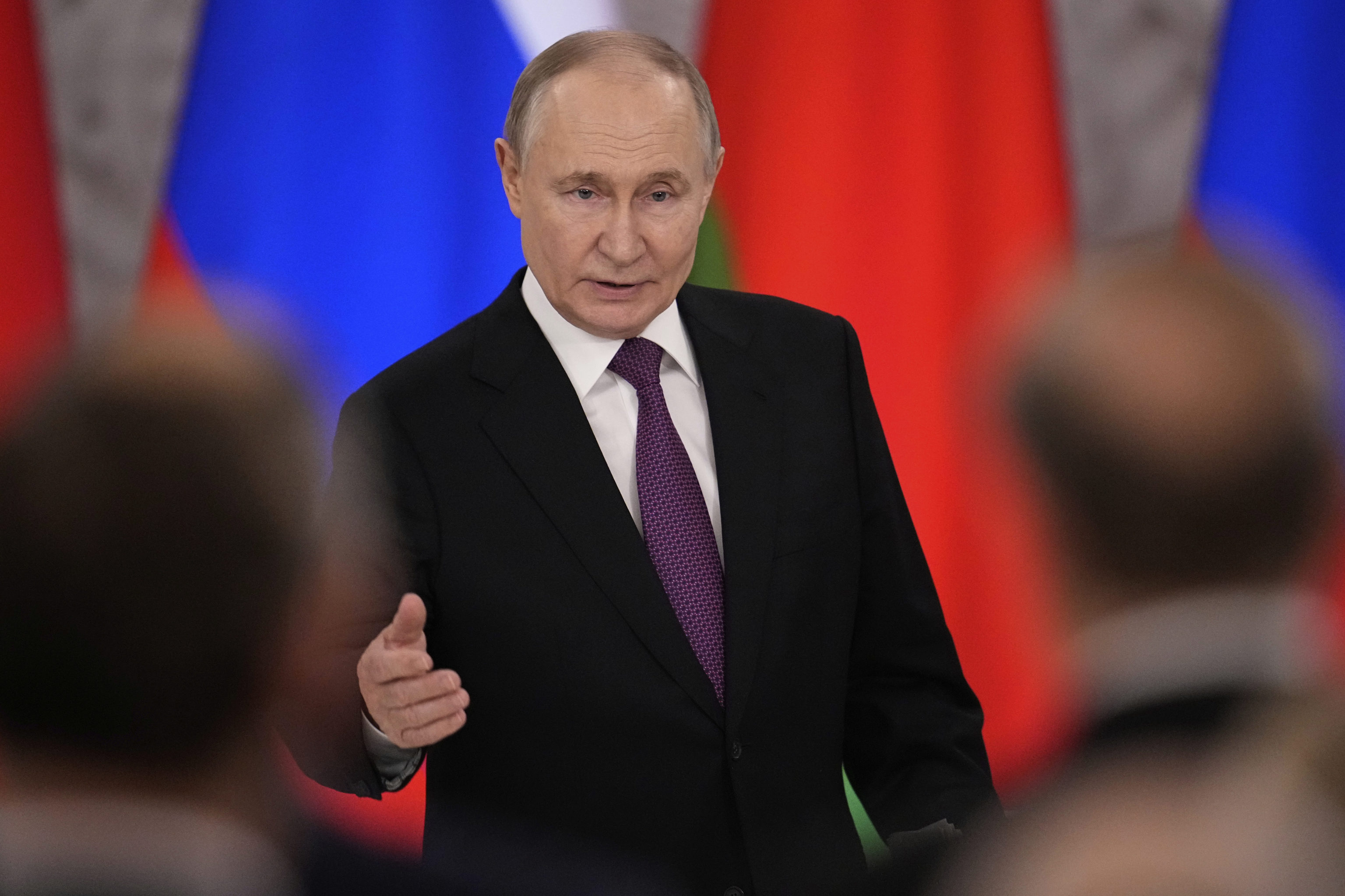Vladimir Putin has burst Donald Trump's bubble. If the negotiation proposed by the US was based on Russia's alleged "goodwill" for peace while it was "more complicated to talk to Kiev," the White House will have to rethink its strategy. President Putin's advisor, Yuri Ushakov, rejected the 30-day ceasefire signed between the US and Ukraine because it would "give a temporary respite" to the Ukrainian army. In an even more Orwellian statement to Russian propagandist Olga Skabayeva, he stated that a "ceasefire now could be an obstacle to peace." This marks the beginning of negotiations "the Russian way," which includes all sorts of tricks, games, and delays.
Following that statement, Ushakov, a very close ally of Putin, met with US negotiator Steve Witkoff, who had landed in Moscow that morning. While that meeting was taking place, the Russian autocrat was meeting with his Belarusian counterpart, Alexander Lukashenko. During the press conference, he did not echo the same sentiments as his negotiator.
President Vladimir Putin stated that Russia was "in agreement" with the US proposals to halt the fighting but mentioned that any ceasefire "should lead to lasting peace and address the root causes of the conflict." The issue is that what is being requested was already impossible to grant before the invasion, as it goes far beyond Ukraine, and it is hardly achievable today. In reality, it must be acknowledged that these demands are not new: Putin has repeated them many times over the years.
George Barros, an analyst at the Institute for the Study of War, commented on this Kremlin move: "You are falling into the Kremlin's language and mind games if you think Putin's statement means he accepted the 30-day ceasefire agreement between the United States and Ukraine. In fact, Putin rejected the terms of President Trump's proposal and is now trying to change the content of the proposal."
These statements, in which the Kremlin aims to change the entire practical basis of the peace negotiations, come hours after The Washington Post published a report from the FSB (Federal Security Service) outlining Moscow's demands for the negotiation table. All demands are maximalist and very difficult for Ukraine and its allies to accept.
Moscow makes it clear in the document that Ukraine must renounce NATO, recognize Crimea as Russian, de facto annexed in 2014, as well as the four complete regions that Russia partially invaded in 2022 (which Moscow has not even managed to conquer entirely after more than three years of war). Additionally, it rejects any deployment of European troops as peace contingents in Ukraine and imposes a buffer zone along the border between the two countries, along with a "demilitarized zone in the south" including Odesa. The same document demands the "dismantling" of the current government in Kiev.
These demands align with previous ultimatums before the large-scale invasion of Ukraine, where it is also requested that NATO withdraw its troops and armaments deployed in Eastern European countries that joined the Alliance after 1997, such as Poland, Romania, and the Baltic States.
Furthermore, Russia demands that the US and NATO commit to not deploying intermediate-range missiles or offensive systems near its borders. Another key point in the document is the demand for Ukrainian neutrality and disarmament of its army.
Donald Trump's envoy, Steve Witkoff, will also meet with Putin in Moscow tonight, "behind closed doors," as the White House pressures the Kremlin to accept this agreement as it is drafted and agreed upon by Ukraine.
Mark Galeotti, one of the leading experts on current Russia, believes that the Kremlin is trying to buy time and still does not have a definitive opinion on the ceasefire: "Overall, I think the lack of response tells us a lot about the functioning of late Putinism, but not about the Kremlin's response to the ceasefire proposal. I am not convinced that Putin himself knows what his final response will be yet."
Ukrainian President Volodymyr Zelensky reacted to the Russian statements: "And this once again confirms that it is Russia that seeks to continue the war and will try to delay the start of peace as much as possible. We hope that the pressure from the United States will be sufficient to compel Russia to end the war."
Meanwhile, in the US, several congressmen criticized the approach Trump is taking in this negotiation. Joe Wilson stated, "Progressive war criminal Putin cannot play the victim. He invaded a sovereign country of 40 million people, and his forces revel in absolute sadism." John Cornyn affirmed, "Putin does not want peace. He wants conquest."
